Welcome to ZMB
Welcome to ZMB
The Center of Medical Biotechnology (ZMB) is an interdisciplinary scientific center of the University of Duisburg-Essen, integrating medical research at the University Hospital and natural sciences at the Campus.
News & Events

NRW-Verdienstorden für Prof. Dr. Ulf Dittmer NRW-Verdienstorden für Prof. Dr. Ulf Dittmer
[02.04.2025] NRW-Ministerpräsident Hendrik Wüst hat den Virologen Prof. Dr. Ulf Dittmer für sein herausragendes Engagement während der Corona-Pandemie und bei der Unterstützung der Ukraine mit dem Verdienstorden des Landes Nordrhein-Westfalen ausgezeichnet. Die Ehrung wurde dem Wissenschaftler der Medizinischen Fakultät der Universität Duisburg-Essen in Anerkennung seines unermüdlichen Einsatzes für Forschung, Diagnostik und öffentlicher Aufklärung zuteil. Prof. Dittmer ist Direktor des Instituts für Virologie am Universitätsklinikum Essen.
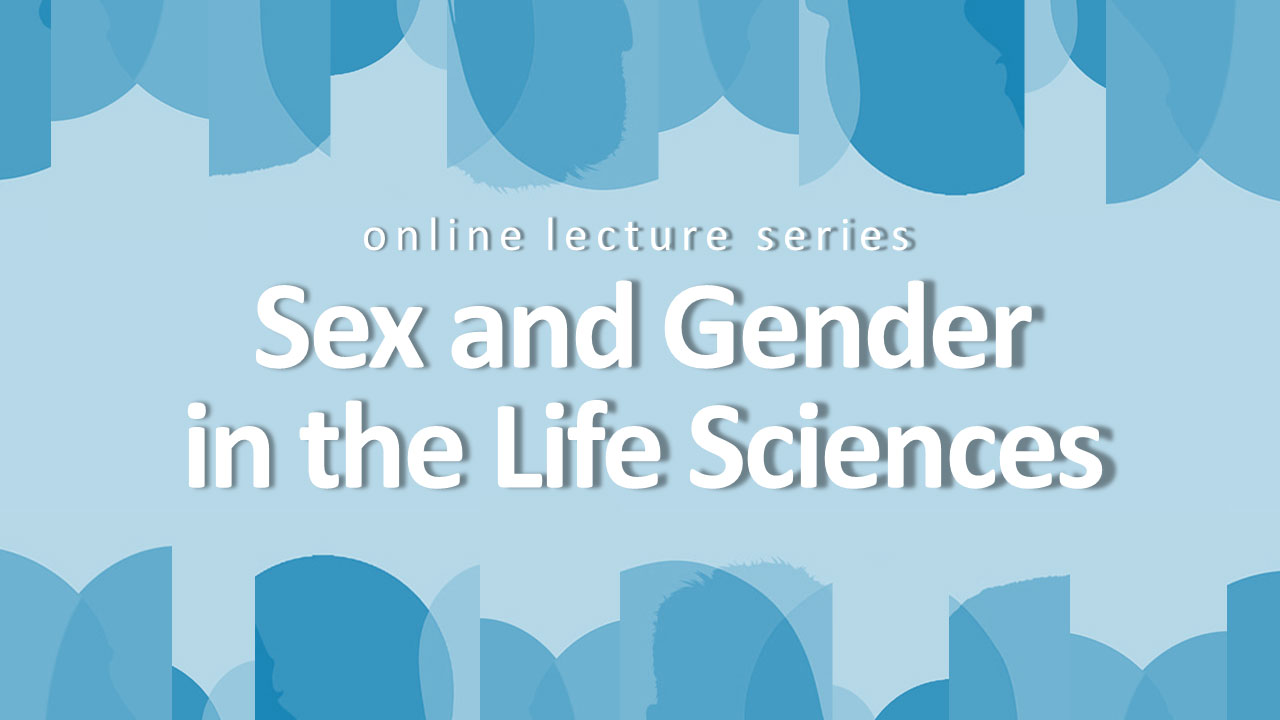
A lecture series of UDE’s DFG networks in the field of Biomedical Sciences Sex and Gender in the Life Sciences
Perspectives on how research in the life sciences can utilize the analytical potential of the gender dimension and open up new directions.
13.03.2025,11-12 h, online
Sex and Gender-Aspects in Physiology impact Daily Life
Prof. Dr. Katja Ferenz, UDE/UME
19.04.2025,17-18 h, hybrid
Sex and Gender in Oncology
Prof. Dr. Kathrin Heinrich, LMU Klinikum
06.05.2025,17-18 h, hybrid
Sex Specific Differences in Tumor Metabolism – yes or no?
Dr. Marija Trajkovic-Arsic, UDE/UME

CRC1430 Guest Speaker Series
29.04.2025
Chuna Ram Choudhary, Center for Protein Research, University of Copenhagen
27.05.2025
Thorben Cordes, Department of Chemistry and Chemical Biology, Technische Universität Dortmund
09.12.2025
Christian Ungermann, Center of Cellular Nanoanalytics, Osnabrueck University
Press Releases 2025
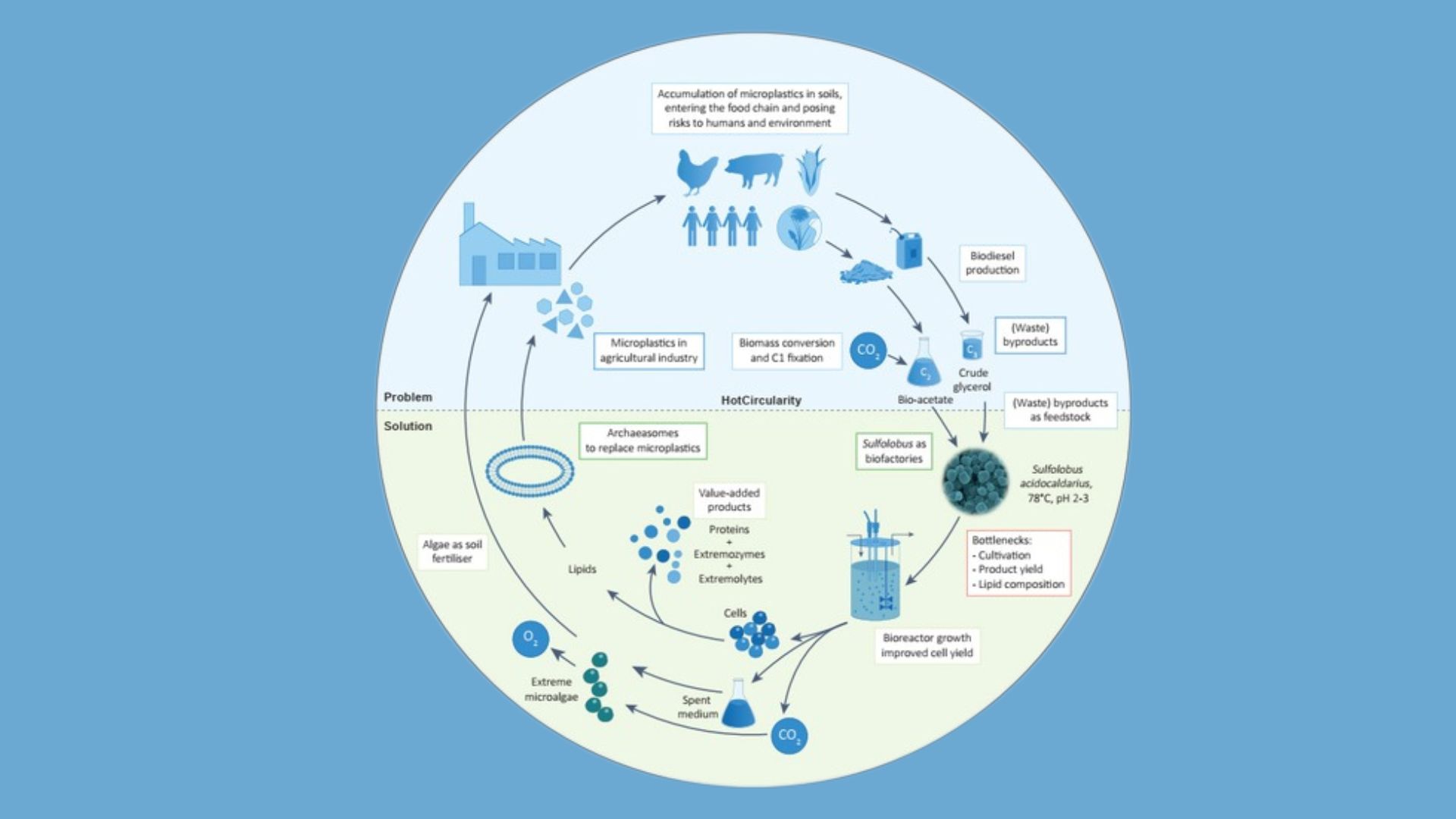
Millionen-Förderung durch VolkswagenStiftung „Biofabrik“ soll Mikroplastik reduzieren
[16.04.2025]
Mikroplastik ist nicht biologisch abbaubar und deshalb ein großes Problem für Mensch und Umwelt. Bei ihrer Suche nach Möglichkeiten, Mikroplastik zu vermeiden, werden Prof. Dr. Bettina Siebers, Leiterin des Bereiches Molekulare Enzymtechnologie und Biochemie (MEB) an der UDE, und Dr. Christopher Bräsen, Forschungsgruppenleiter am MEB, gemeinsam mit Prof. Dr. Oliver Spadiut von der Technischen Universität Wien nun von der VolkswagenStiftung unterstützt. 1,4 Millionen Euro stehen dem Forschungsteam für ihr Projekt zur Verfügung, in dem Mikroplastik ersetzt werden soll durch natürliche Lipide, produziert von Mikroorganismen.
ZMB Member: Prof. Dr. Bettina Siebers

Success in Enzyme Research New Class of Active Ingredients Developed
[15.04.2025]
Inside cells, two important enzymes act like small central regulatory hubs: dipeptidyl peptidase 8 and 9 – DPP8/9 for short. Among other things, they regulate inflammatory reactions and influence whether a survives or dies. These mechanisms are especially important in cancer cells. With the help of drugs that inhibit DPP8/9, tumors can be targeted. However, until now there has been a lack of active compounds that specifically switch off/selectively inhibit only these two enzymes without disrupting other important proteins and processes in the body.
Researchers at the Center of Medical Biotechnology (ZMB) at the University of Duisburg-Essen have now made a breakthrough: they have developed a novel class of inhibitors that show a high selectivity toward DPP8/9. They have just published their results in the journal Nature Communications.
ZMB Member: Prof. Dr. Markus Kaiser
ZMB Member: Prof. Dr. Robert Huber
ZMB Member: Prof. Dr. Doris Hellerschmied-Jelinek

Minister breaks ground Start for ACTIVE SITES research building
[07.04.2025]
Today, 7 April, Ina Brandes, Minister of Culture and Science of the State of North Rhine-Westphalia, together with the Mayor of Essen, Thomas Kufen, broke ground for ACTIVE SITES on the Thurmfeld site in Essen. This marks the start of the University of Duisburg-Essen's new research building, which will bring together scientists from the natural sciences, life sciences and engineering: They will use state-of-the-art large-scale facilities and the latest methods to analyse the reaction sites of ultra-fast processes. The German government and the state of North Rhine-Westphalia will each contribute half of the costs for construction and equipment, totalling around 70 million euros. Research operations are scheduled to start in the summer of 2028.
ZMB Member: Prof. Dr. Stephan Barcikowski
ZMB Member: Prof. Dr. Shirley Knauer
ZMB Member: Prof. Dr. Alexander Probst

Neuer Therapieansatz für Diabetes-Patient:innen Molekulare Klebstoffe schützen insulinproduzierende Zellen
[01.04.2025]
Ein internationales Forschungsteam hat einen neuen Ansatz entwickelt, um insulinproduzierende Betazellen vor diabetesbedingten Schäden zu bewahren. Spezielle Moleküle – sogenannte molekulare Klebstoffe – stabilisieren eine entscheidende Protein-Interaktion, die den Zelltod verhindert. Die Erkenntnisse, veröffentlicht in Nature Communications, könnten den Weg für neuartige Therapien ebnen.
ZMB Member: Prof. Dr. Markus Kaiser
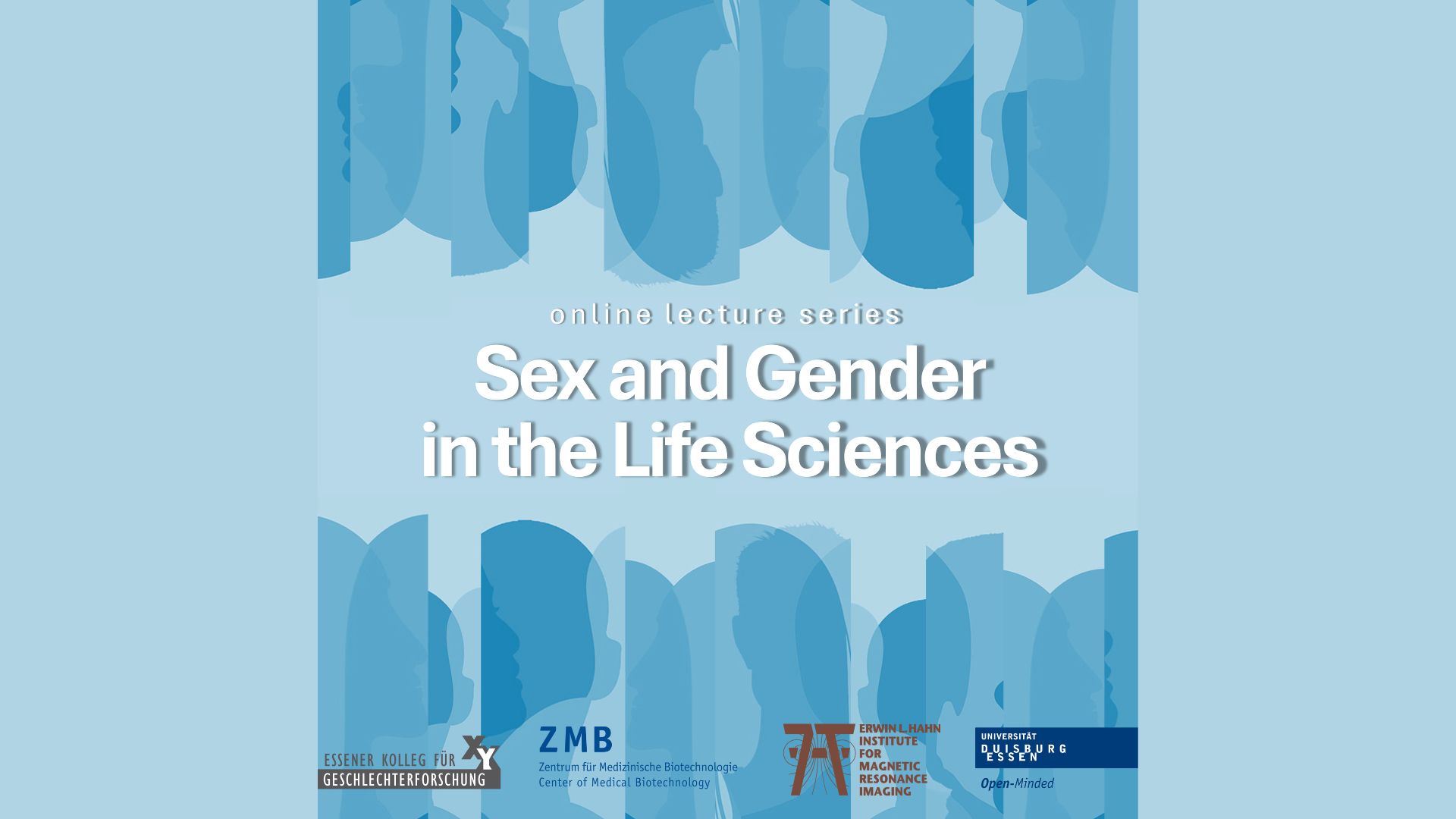
Vortragsreihe: Sex and Gender in the Life Sciences (K)Ein kleiner Unterschied
[12.03.2025] Dieselbe Erkrankung, aber unterschiedliche Ausprägungsformen: Bei der Diagnose und Behandlung von Frauen und Männern spielt die geschlechtersensible Forschung eine immer größere Rolle – zu Recht, wie aktuelle Forschungsergebnisse zeigen. Die englischsprachige Vortragsreihe „Sex and Gender in the Life Sciences“ der UDE, an der sich fünf von der Deutschen Forschungsgemeinschaft geförderte Verbundforschungsprojekte der UDE beteiligen, stellt die Bedeutung geschlechtersensibler Forschung für die Lebenswissenschaften in den Mittelpunkt. Die Reihe geht am 13. März online an den Start mit einem Vortrag zum Einfluss von Sex und Gender-Aspekten in der Physiologie auf das tägliche Leben.
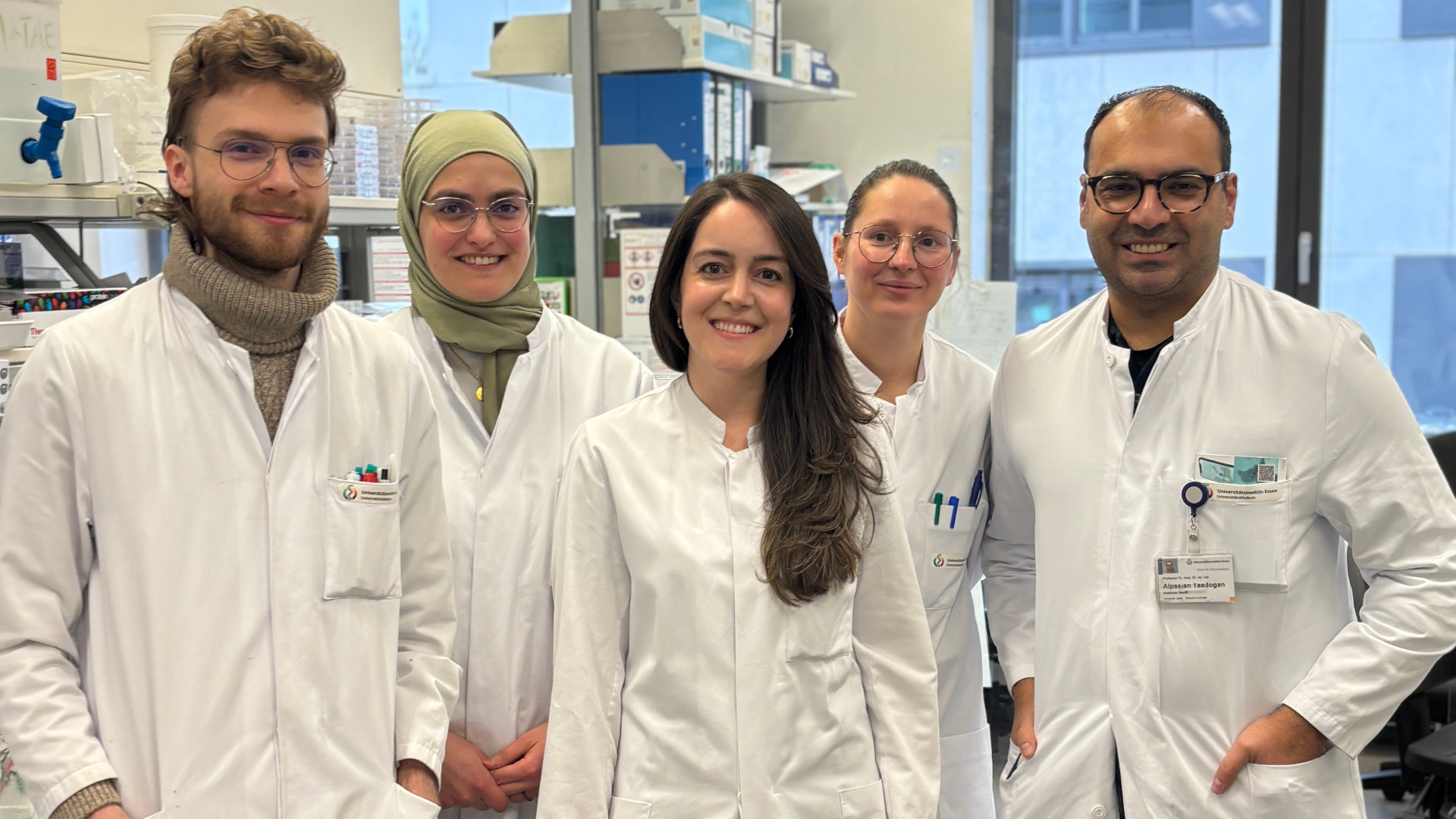
Hautkrebs Wie Stress in Krebszellen die Metastasierung hemmen kann
[13.02.2025]
Ein Forschungsteam der Medizinischen Fakultät der Universität Duisburg-Essen hat eine neue Entdeckung gemacht: Das Protein SELENOO aus der Familie der Selenoproteine spielt eine wichtige Rolle bei der Ausbreitung von Krebszellen. Das zeigt das Team in einer neuen Studie, veröffentlicht im Fachjournal Cancer Research.
ZMB Member: Prof. Dr. Alpaslan Tasdogan

Krebsbehandlung KI verbessert personalisierte Therapie
[31.01.2025]
Maßgeschneiderte, personalierte Medizin basiert bisher auf einer geringen Anzahl an Parametern. Ein Forschungsteam der Medizinischen Fakultät der UDE, der Ludwig-Maximilians-Universität München (LMU) und des Berlin Institute for the Foundations of Learning and Data (BIFOLD) an der Technischen Universität Berlin entwickelt einen neuen Ansatz zur Verbesserung der personalisierten Krebsbehandlung durch Künstliche Intelligenz.
ZMB Member: Prof. Dr. Sebastian Bauer,
Prof. Dr. Dagmar Führer-Sakel,
Prof. Dr. Ken Herrmann,
Prof. Dr. Tienush Rassaf, Prof. Dr. Alexander Roesch, Prof. Dr. Dirk Schadendorf, Prof. Dr. Jens Siveke, Prof. Dr. Martin Schuler
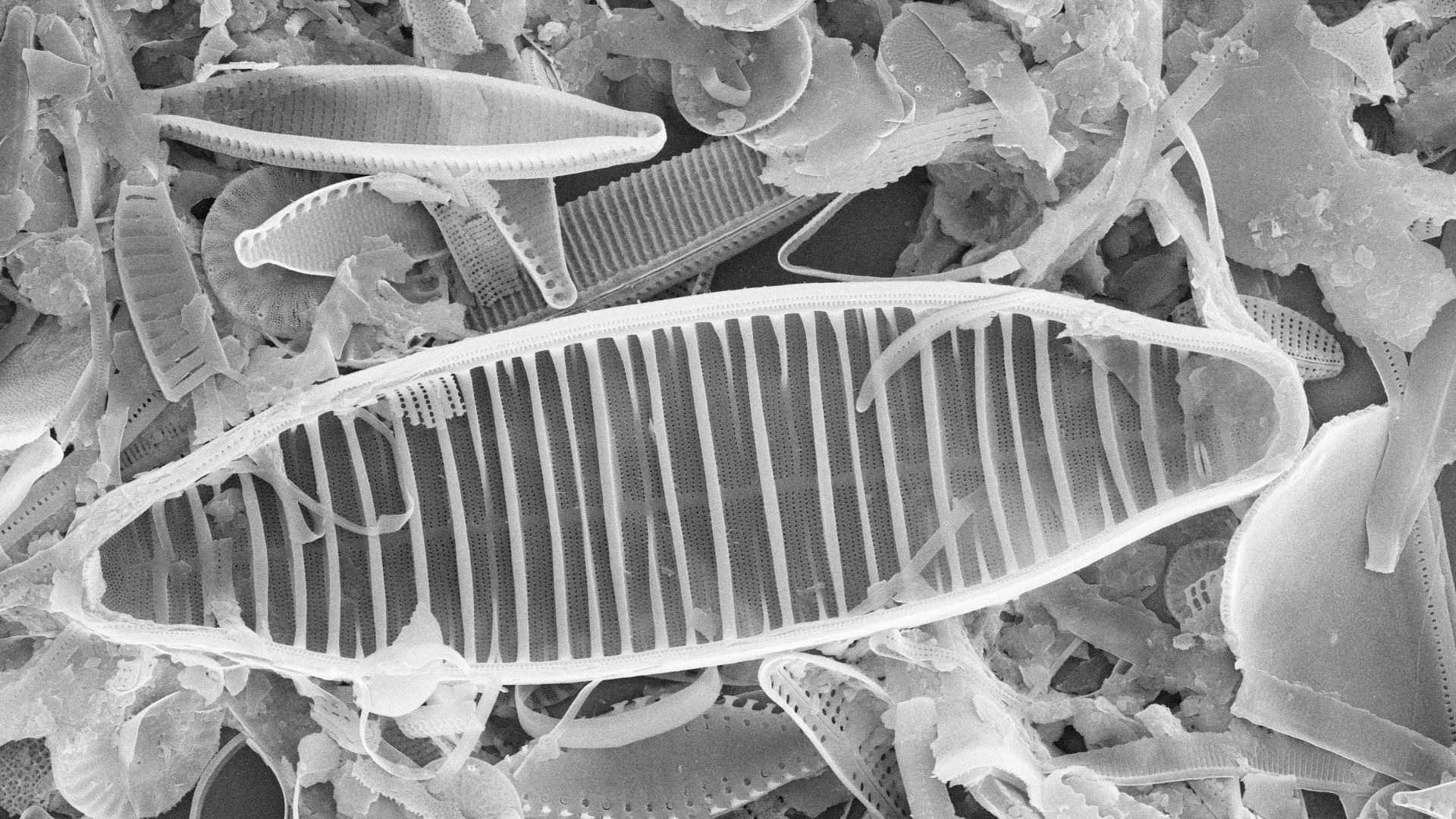
Chemische Verschmutzung bekämpfen Gewässerreinigung mit Algen
[24.01.2025]
Europas Gewässer sind in schlechtem Zustand: Über die Hälfte von ihnen ist chemisch stark belastet. Kein Wunder – täglich werden in Europa in Industrie und Landwirtschaft bis zu 70.000 verschiedene Chemikalien eingesetzt. Forschende der Universität Duisburg-Essen haben jetzt eine neue Methode entwickelt, um verschmutzte Gewässer zu reinigen. Ihre aktuelle Studie zeigt*, dass fossile Überreste von Kieselalgen (Diatomeen) Schadstoffe effizient aus dem Wasser entfernen können, nachdem sie chemisch modifiziert wurden.
ZMB Member: Prof. Dr. Anzhela Galstyan
16.04.2025 - 11:37:26
Evidenzbasierte Medizin: CuWiMed vermittelt Studierenden wissenschaftliche Kompetenzen
15.04.2025 - 09:02:48
Laborjournal-Ranking: Zwei Essener Forscher unter den Top 20 in der Physiologie
ZMB Research Programs
Oncology
The concept of this research program is to understand fundamental processes in tumor biology in order to develop novel molecularly defined and rationally applied cancer treatments.
Participating researchers from biology, experimental and clinical medicine study tumors as “biological systems" and so called “neo-organs”.
A large variety of approaches, experimental systems and methodologies are in place to analyse many aspects of tumor development, growth, progression and tumor cell migration.
Immunology, Infectious Diseases and Transplantation
The immune system responds to various pathogens including viruses and bacteria in different ways to prevent severe disease and persistence in the host. Many pathogens, however, have developed mechanisms to evade immune defence.
The molecular and cellular interactions of pathogens with the immune system are studied within this program.
Molecular and Chemical Cell Biology
Molecular and chemical cell biology is an interdisciplinary research program connecting molecular cell biology and genetics with chemistry and structural biology. Scientists of the participating disciplines collaborate to advance the understanding of basic molecular mechanisms of important biological processes.
The analysis of regulation and deregulation of key pathways is linking basic biology with pathophysiology.
Latest Publications
-
Acid sphingomyelinase activity suggests a new antipsychotic pharmaco-treatment strategy for schizophreniaIn: Molecular Psychiatry (2025) in pressOnline Full Text: dx.doi.org/ (Open Access)
-
Adiponectin reduces immune checkpoint inhibitor-induced inflammation without blocking anti-tumor immunityIn: Cancer Cell Vol. 43 (2025) Nr. 2, pp. 269 - 291.e19Online Full Text: dx.doi.org/ (Open Access)
-
Aspartate signalling drives lung metastasis via alternative translationIn: Nature Vol. 638 (2025) Nr. 2, pp. 244 - 250Online Full Text: dx.doi.org/
-
Attenuated growth factor signaling during cell death initiation sensitizes membranes towards peroxidationIn: Nature Communications Vol. 16 (2025) Nr. 1, 1774Online Full Text: dx.doi.org/ (Open Access)
-
Autogene cevumeran with or without atezolizumab in advanced solid tumors: a phase 1 trialIn: Nature Medicine Vol. 31 (2025) Nr. 1, pp. 152 - 164Online Full Text: dx.doi.org/ (Open Access)
-
CCooperative Active Sites on Ag2Pt3TiS6 for Enhanced Low-Temperature Ammonia Fuel Cell ElectrocatalysisIn: Angewandte Chemie International Edition Vol. 64 (2025) Nr. 6, e202418691 in pressOnline Full Text: dx.doi.org/ (Open Access)
-
Common hereditary variants of the APOE gene and posttransplant outcome in acute myeloid leukemiaIn: Blood (2025) in pressOnline Full Text: dx.doi.org/
-
In situ Cyclization of Aromatic Thioethers in Emissive Materials to Generate Phosphorescent DibenzothiophenesIn: Angewandte Chemie International Edition Vol. 64 (2025) Nr. 2, e202414326Online Full Text: dx.doi.org/ (Open Access)
-
Lack of AtMC1 catalytic activity triggers autoimmunity dependent on NLR stabilityIn: EMBO Reports (2025) in pressOnline Full Text: dx.doi.org/ (Open Access)
-
Molecular glues of the regulatory ChREBP/14-3-3 complex protect beta cells from glucolipotoxicityIn: Nature Communications Vol. 16 (2025) Nr. 1, 2110Online Full Text: dx.doi.org/ (Open Access)
-
Spatial tumor immune heterogeneity facilitates subtype co-existence and therapy response in pancreatic cancerIn: Nature Communications Vol. 16 (2025) Nr. 1, 335Online Full Text: dx.doi.org/ (Open Access)
-
Sulphostin-inspired N-phosphonopiperidones as selective covalent DPP8 and DPP9 inhibitorsIn: Nature Communications Vol. 16 (2025) Nr. 1, 3208Online Full Text: dx.doi.org/ (Open Access)
-
msiFlow : automated workflows for reproducible and scalable multimodal mass spectrometry imaging and microscopy data analysisIn: Nature Communications Vol. 16 (2025) Nr. 1, 1065Online Full Text: dx.doi.org/ (Open Access)
